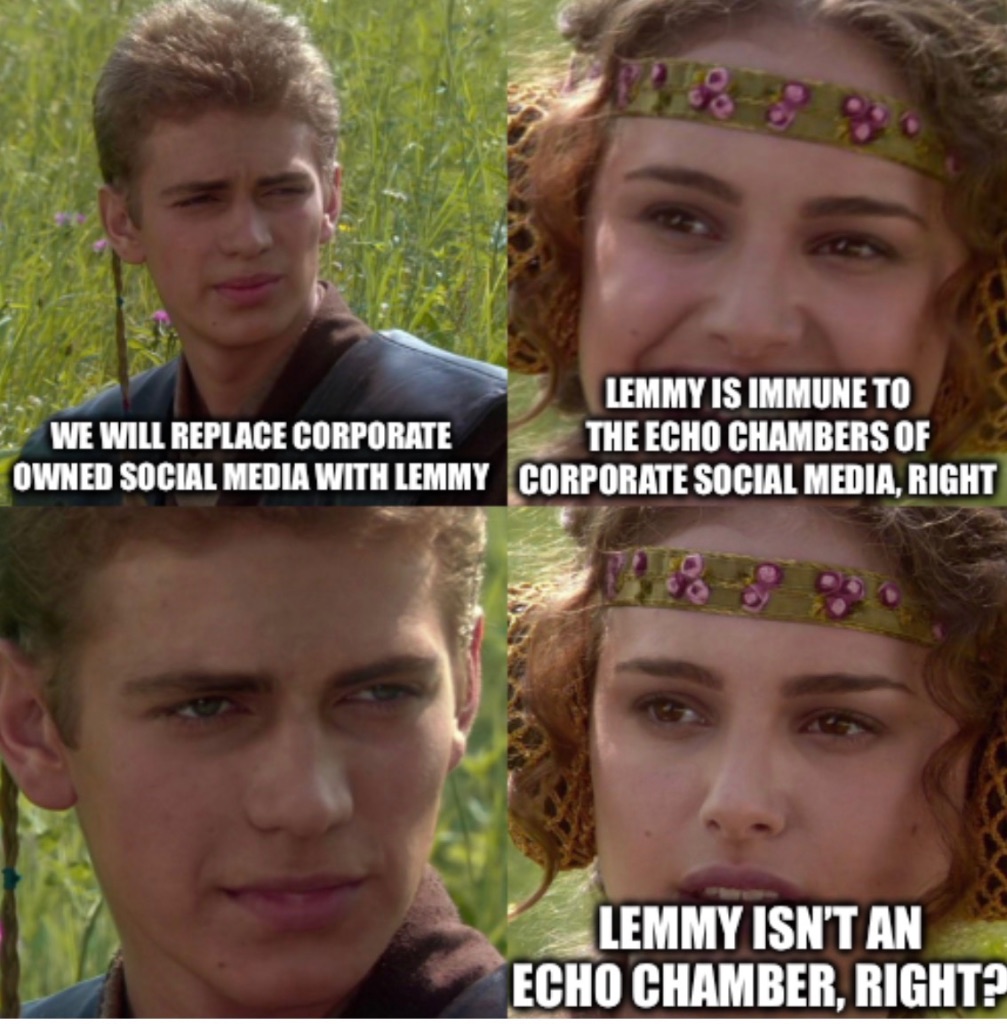“Fixing” social media is like “fixing” capitalism. Any manmade system can be changed, destroyed, or rebuilt. It’s not an impossible task but will require a fundamental shift in the way we see/talk to/value each other as people.
The one thing I know for sure is that social media won’t ever improve if we all accept the narrative that it can’t be improved.
We live in capitalism. Its power seems inescapable. So did the divine right of kings. Any human power can be resisted and changed by human beings. Resistance and change often begin in art, and very often in our art, the art of words.
-Ursula K Le Guin
Seriously, read her books. I looooove „The Dispossessed“
The Left Hand of Darkness is excellent too. Sci-fi from the 1960s about a planet whose people have no fixed sex or gender, and a man from Earth who struggles to understand and function in this society. That description makes it sound very worthy, but it’s actually gripping and moving.
LeGuin is a treasure.
Particularly apt given that many of the biggest problems with social media are problems of capitalism. Social media platforms have found it most profitable to monetize conflict and division, the low self-esteem of teenagers, lies and misinformation, envy over the curated simulacrum of a life presented by a parasocial figure.
These things drive engagement. Engagement drives clicks. Clicks drive ad revenue. Revenue pleases shareholders. And all that feeds back into a system that trades negativity in the real world for positivity on a balance sheet.
Yeah, this author is the pop-sci / sci-fi media writer on Ars Technica, not one of the actual science coverage ones that stick to their area of expertise, and you can tell by the overly broad, click bait, headline, that is not actually supported by the research at hand.
The actual research is using limited LLM agents and only explores an incredibly limited number of interventions. This research does not remotely come close to supporting the question of whether or not social media can be fixed, which in itself is a different question from harm reduction.
This is spot on. The issue with any system is that people don’t pay attention to the incentives.
When a surgeon earns more if he does more surgeries with no downside, most surgeons in that system will obviously push for surgeries that aren’t necessary. How to balance incentives should be the main focus on any system that we’re part of.
You can pretty much understand someone else’s behavior by looking at what they’re gaining or what problem they’re avoiding by doing what they’re doing.
If you read the article, the argument they are making is that you cannot fix social media by simply tweaking the algorithm. We need a new form of social media that is not just everyone screaming into the void for attention, which includes Lemmy, Mastodon, and other Fediverse platforms.
Meta and twitter cease to exist tomorrow and 99% of the issues are solved IMO
The fediverse is social media and it doesn’t have anything close to the same kinds of harmful patterns
Amazon, Google and Microsoft would still be there, so the Internet seems to be suffering from a metastatic cancer at this point. Cutting off two revolting lumps helps, but the prognosis doesn’t look that great.
None of those have had much success in creating social networks that suck people in quite like the others
Not to say they don’t have their own problems, but the bulk of problems with social media come squarely from meta & twitter.
That’s true as far as the social media landscape is concerned. I was talking about the internet as a whole.
Social media isn’t broken. It’s working exactly how it was meant to. We just need to break free of it.
We’re on the solution right now, lmao
Of course -corporate- social media can’t be fixed … it already works exactly they way they want it to…

Its performing as expected
I also noticed something in my friend group. No one makes anything. Its all share share share. Im the only one taking original photos or videos or making jokes. Its kind of sad. And is not like their lives are boring either. They’d just rather consume others stuff.
Are most people like that?
I’ve started asking people what they have created lately… They seem to take it as an insult when it isn’t meant to be.
The reality is consuming is easier than producing. You can see it with the usage of phones and tablets vs laptops. It’s hard to create on a touch screen but it’s easy to consume.
Does making horrible horrible things in CK2 count as creation? If not I am simply creating a mess of my life.
Yeah its sad computing is dying because of ipads. Lot of people.dont even have a computer.
Yes.
Whatchu gonna do about it?
~(not asking specifically you, bridge, just didn’t want to leave the thread at a circle jerk)~
No shit. Unless the Internet becomes democratised and publicly funded like other media in other countries like the BBC or France24, social media will always be toxic. They thrive in provocations and there are studies to prove it, and social media moguls know this. Hell, there are people who make a living triggering people to gain attention and maintain engagement, which leads to advertising revenue and promotions.
As long as profit motive exists, the social media as we know it can never truly be fixed.
Yes and yes. What is crazy to me is that the owners of social media want more than profits. They also have a political agenda and are willing to tip the scales against any politician who opposes their interests or the interests of their major shareholders. Facebook promoted right wing disinformation campaigns against leaders who they disliked such as mark Carney. Their shareholders should be sued into oblivion and their c levels thrown into prison. Yet our legal system forbids this.
Social spaces aren’t something that needs fixing.
We blame the problems caused by wealth inequality on technology as a way to not even discuss making the rich contribute to society
Uhm, I seem to recall that social media was actually pretty good in the late 2000s and early 2010s. The authors used AI models as the users. Could it be that their models have internalized the effects of the algorithms that fundamentally changed social media from what it used to be over a decade ago, and then be reproducing those effects in their experiments? Sounds like they’re treating models as if they’re humans, and they are not. Especially when it comes to changing behaviour based on changes in the environment, which is what they were testing by trying different algorithms and mitigation strategies.
The original source is here:
https://arxiv.org/abs/2508.03385
Social media platforms have been widely linked to societal harms, including rising polarization and the erosion of constructive debate. Can these problems be mitigated through prosocial interventions? We address this question using a novel method – generative social simulation – that embeds Large Language Models within Agent-Based Models to create socially rich synthetic platforms. We create a minimal platform where agents can post, repost, and follow others. We find that the resulting following-networks reproduce three well-documented dysfunctions: (1) partisan echo chambers; (2) concentrated influence among a small elite; and (3) the amplification of polarized voices – creating a “social media prism” that distorts political discourse. We test six proposed interventions, from chronological feeds to bridging algorithms, finding only modest improvements – and in some cases, worsened outcomes. These results suggest that core dysfunctions may be rooted in the feedback between reactive engagement and network growth, raising the possibility that meaningful reform will require rethinking the foundational dynamics of platform architecture.
deleted by creator
Social media hasn’t been designed to cause these problems, though. It’s more a babelfish thing.
deleted by creator
Lemmy is social media. So is Mastodon. So is peer tube. And everything else in the fediverse.
So I wouldn’t compare social media to a gun, across the board.
deleted by creator
The article argues that extremist views and echo chambers are inherent in public social networks where everyone is trying to talk to everyone else. That includes Fediverse networks like Lemmy and Mastodon.
They argue for smaller, more intimate networks like group chats among friends. I agree with the notion, but I am not sure how someone can build these sorts of environments without just inviting a group of friends and making an echo chamber.
There’s actually some interesting research behind this - Dunbar’s number suggests humans can only maintain about 150 meaningful relationships, which is why those smaller networks tend to work better psychologicaly than the massive free-for-alls we’ve built.
The study is based on having LLMs decide to amplify one of the top ten posts on their timeline or share a news headline. LLMs aren’t people, and the authors have not convinced me that they will behave like people in this context.
The behavioral options are restricted to posting news headlines, reposting news headlines, or being passive. There’s no option to create original content, and no interventions centered on discouraging reposting. Facebook has experimented with limits to reposting and found such limits discouraged the spread of divisive content and misinformation.
I mostly use social media to share pictures of birds. This contributes to some of the problems the source article discusses. It causes fragmentation; people who don’t like bird photos won’t follow me. It leads to disparity of influence; I think I have more followers than the average Mastodon account. I sometimes even amplify conflict.














